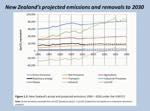 For many of us, after each climate COP it’s the time to ask not so much “what did we lose and who do we blame,” but rather “what did we get, what can we work with?” My last update was on the Saturday afternoon, and the talks were to go on late into the night. I always laugh when looking at updates the next day announcing a final press conference at 2.30 am. Who books a press conference at that time of day, except at the outcome of a climate talks?
For many of us, after each climate COP it’s the time to ask not so much “what did we lose and who do we blame,” but rather “what did we get, what can we work with?” My last update was on the Saturday afternoon, and the talks were to go on late into the night. I always laugh when looking at updates the next day announcing a final press conference at 2.30 am. Who books a press conference at that time of day, except at the outcome of a climate talks?
Yes, it was disappointing. The very bare bones of what we need going into Paris next year. There have been so many think pieces, so much analysis that everyone will have read by now, that it’s probably better to point to them rather than do my own. Carbon Brief did a great overview, the BBC a reasonable piece, and the Union of Concern Scientists’ Alden Meyer a detailed look.
Continue reading “Now the dust has settled, what did Lima bring?”

